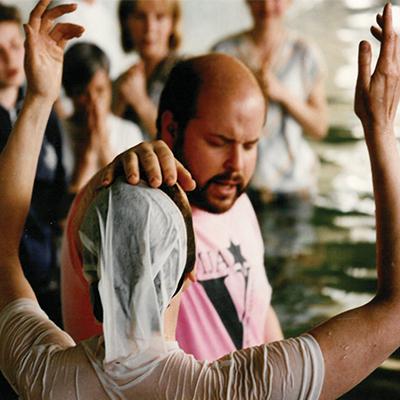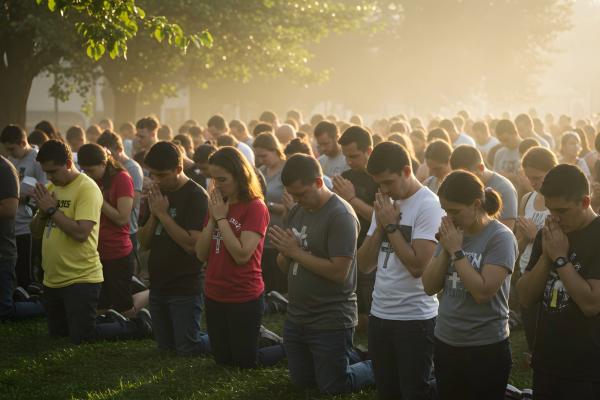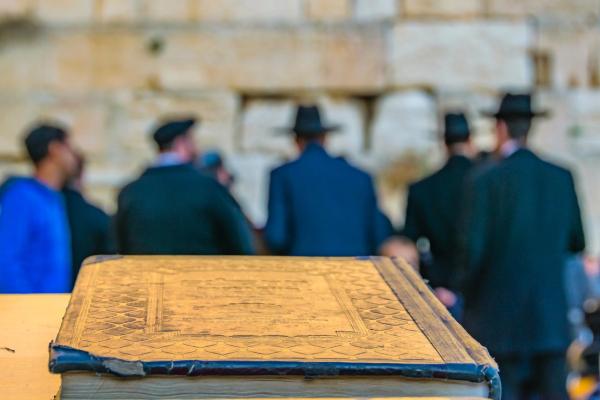What was he doing at a Bible study? He felt completely out of place. Jonathan Bernis was 20 years old, Jewish, using drugs, and he believed one thing about Jesus – that He did not like Jews. All Jonathan wanted to do was leave the home where the Bible study was taking place, but he couldn’t. He was wearing borrowed clothes, and his own were tumbling in the host’s dryer. He was stuck.
Jonathan Bernis was born December 1, 1959 to Jewish parents in Rochester, New York. Theirs was a traditional Jewish family who went to synagogue for the High Holidays and celebrated other significant Jewish events. Growing up, Jonathan learned a lot about God, but he certainly didn’t feel like he knew God. When he completed his Bar Mitzvah at age 13, he felt he had fulfilled his spiritual duty.
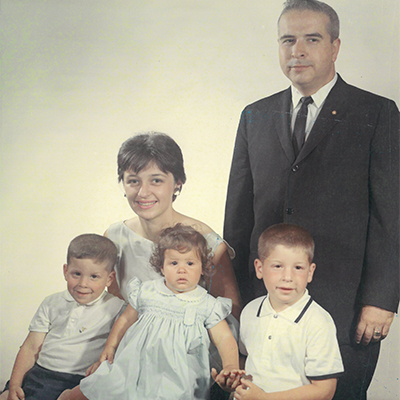
As for Jesus, Jonathan thought He was the God of the Gentiles and the son of Mr. and Mrs. Christ. Because so many atrocities had been committed against Jewish people in the name of Jesus over the centuries, he assumed these persecutions came from the teachings of Jesus.
Jonathan’s first exposure to the Gospel came through his assistant wrestling coach, an All-American athlete and born-again Christian. “He had an unusual peace about him,” Jonathan wrote in A Rabbi Looks at Jesus of Nazareth. “I found it compelling that anyone could believe he had such a close, personal relationship with God.” Though he was intrigued to hear his coach talk about his faith, Jonathan’s Jewish upbringing taught him Jesus was emphatically not an option for Jews.
In college, Jonathan experimented with drugs and explored various ideologies, philosophies, and even cults. He partied hard and began dealing drugs. He watched a friend descend so deeply into addiction that the dramatic changes caused him to sever contact with her, unable to bear the sadness of where her life was headed.
Several months later, however, Jonathan ran into her and was shocked to find she had become a different person. She told him God had delivered her from drugs and that she was born again. After their initial reconnection, this friend relentlessly witnessed to Jonathan. He began avoiding her but finally agreed to go with her to a Bible study.
It was pouring rain the night of the study, and Jonathan arrived by motorcycle, drenched. The hosts kindly offered him dry clothes and put his in the dryer for him. Now he was stuck. He felt so out of place, he wanted to leave but couldn’t. When the study ended, the leader took Jonathan aside and showed him Romans 3:23: “For all have sinned, and come short of the glory of God...” and Romans 6:23: “For the wages of sin is death....”
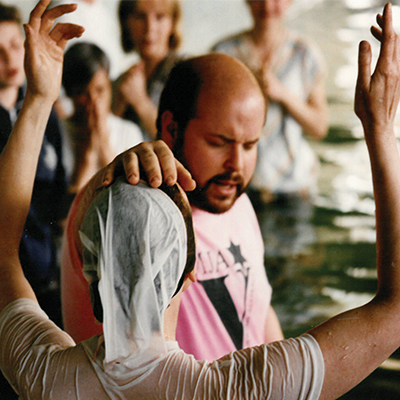
What happened next Jonathan said he “can only refer to as a supernatural experience.” The room became abnormally bright and warm. He felt held in place on the couch. For the first time, he felt separated from a personal God. “My heart was ready to respond, but my head was not,” Jonathan recounts in his book A Rabbi Looks at Jesus of Nazareth. He did not want to give up the life he was enjoying, but to get out of the uncomfortable situation, he prayed with the teacher.
Jonathan went home to his dorm room that night and tried to forget the whole experience. But a few days later, he developed an intense hunger to read the Bible.
Delving into the New Testament, Jonathan was shocked to find references to the Jewish heroes of his upbringing and that “Jesus” was merely the Anglicized version of the Hebrew name Yeshua, which means “salvation.” He was even more astonished to discover in his own Hebrew Scriptures “prophecy after prophecy that clearly pointed toward Yeshua as the promised Messiah of Israel.”
Over the next several months, Jonathan experienced a complete transformation. He changed his major from business to classics in Jewish studies and Christianity, and he kept growing in his relationship with the Lord. He felt called to full-time ministry to the Jewish people, called to tell them about Yeshua who he was now thoroughly convinced was the Messiah of Israel.
Finally, the time came when Jonathan was ready to tell his parents about his faith in Yeshua. They were not happy. “To them,” Jonathan remembers, “I had turned my back on my Jewish heritage.”
Jonathan knew this was no mere “phase,” as his parents had hoped. Now, he didn’t just know about the Creator of the universe. He knew Him personally.
Four years later, when Jonathan was just 24 years old, he founded Congregation Shema Yisrael in his hometown of Rochester, New York. He began a monthly newsletter and gave it a title that revealed the deep passion of his heart: to catch the attention of his people on behalf of their Messiah Yeshua. Unbeknown to him at the time, it was a name that would follow him into a future he never imagined. He called the publication “Hear O Israel.”
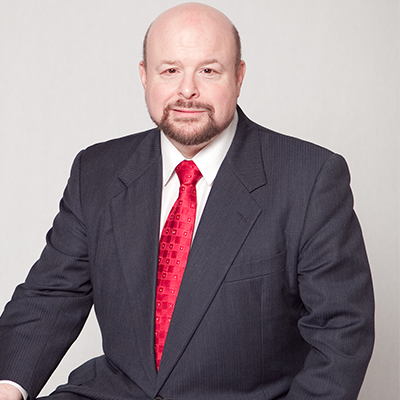
Find out how “Hear O Israel” became a part of Jonathan’s destiny and a whole new ministry – next month in April’s JVMI 50th Anniversary blog post.
Don’t’ miss Flashback Fridays on our Facebook page where you’ll see glimpses of our 50-year journey.
Discover the whole inspiring JVMI story with our beautiful, full-color coffee table book, Jewish Voice: A Look at 50 Years. Along with a fascinating narrative chronicling 50 years of ministry, this special edition includes biographies, stories, and reflections from television guests, partners, and staff as well as over 200 photographs.
Join us on the Jewish Voice Blog each month in 2017 as we unfold the Jewish Voice story and piece together for you how two ministries with the same heart merged to become the Jewish Voice Ministries International you know today.
Previous JVMI 50th Anniversary blog posts:



